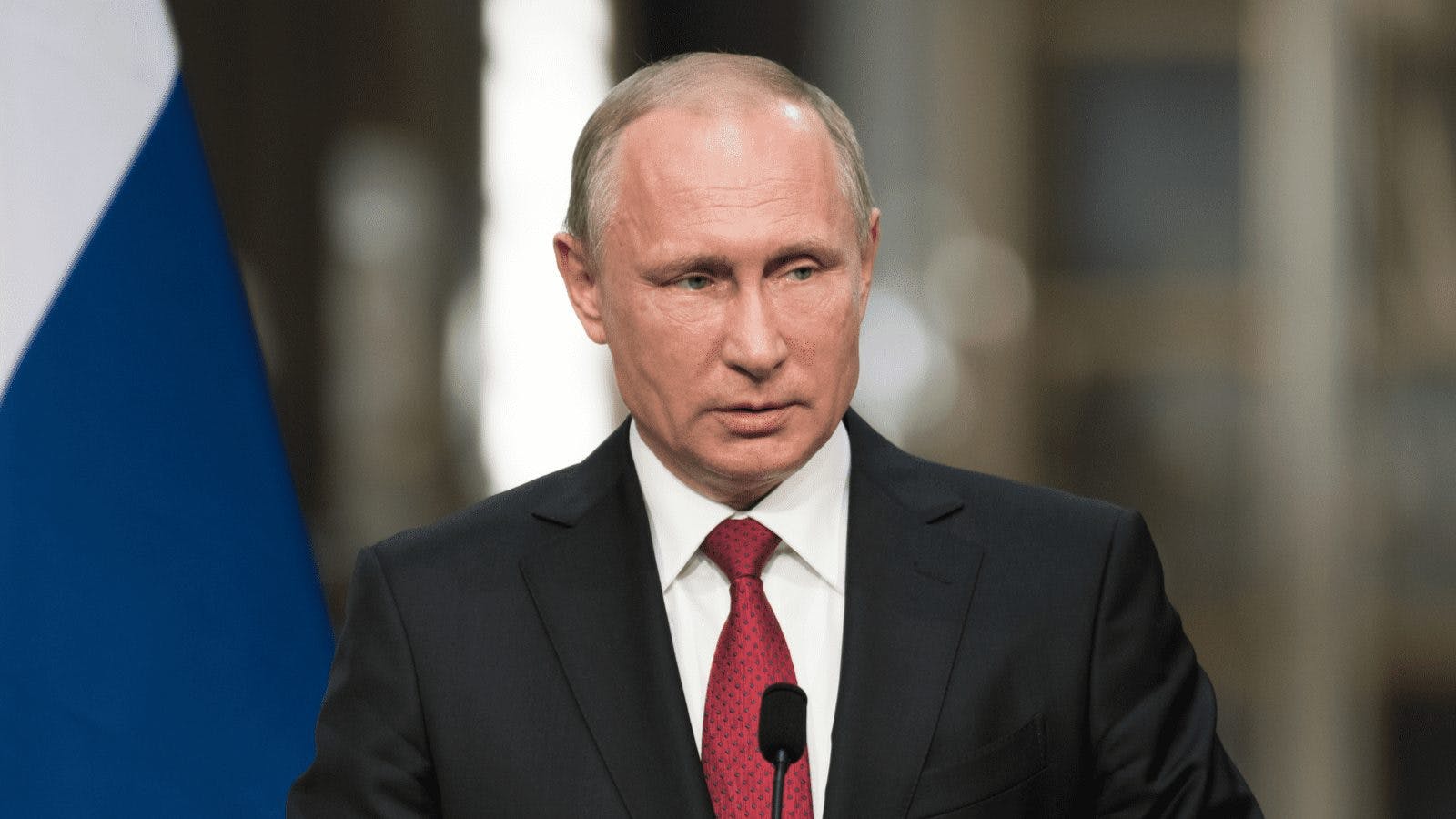Russian Financiers Could Turn To Crypto To Sidestep US, European Sanctions
Using cryptocurrencies instead of US dollars would be a violation of sanction agreements

Russian President Vladimir Putin | Source: Shutterstock
- The current sanctions target Russian banks, technology companies and aerospace operators
- Russia has recently moved to regulate cryptocurrencies, which industry participants say is no coincidence
Following a fresh round of sanctions aimed at isolating Russian banks from the global financial system, experts are eyeing cryptocurrencies as a means to bypass the blacklist.
The US- and European-imposed measures target Russian banks, technology companies and aerospace operators — a wide swath of the country’s economy — following an escalation of Russian President Vladimir Putin’s unprovoked invasion of Ukraine.
Leah Wald, CEO of crypto asset manager Valkyrie Investments, said it is uncertain whether Russia would use crypto to circumvent sanctions, but “the likelihood they could make such a pivot is very high.”
It’s worth keeping in mind that using digital assets instead of US dollars is likely a violation of the sanctions, legal experts say.
The primary sanctions overseer in the US, the Office of Foreign Assets Control (OFAC), “takes the view that its sanctions apply to activity conducted in cryptocurrency,” according to Evan Abrams, an attorney at Steptoe & Johnson who specializes in sanctions.
“They generally would view a transaction conducted in bitcoin or another asset the same as they would view a transaction conducted in dollars,” Abrams said.
US-based cryptocurrency exchanges and wallet providers must follow the same reporting and know-your-customer (KYC) regulations as banks, but decentralized exchanges and marketplaces in other countries may offer a workaround.
“As long as they don’t use a US-regulated entity to purchase and move the crypto, I don’t think that it would be difficult [to avoid sanctions],” said David Tawil, president of crypto hedge fund firm ProChain Capital.
Employing a number of different exchanges would also make it easier for Russian financiers to cover their tracks, according to Wald, a former World Bank analyst.
“Russian companies could quite easily use Russia-based exchanges or brokers as fiat on-ramps, and then transact in crypto across multiple decentralized exchanges or through other tools meant to conceal the source of funds,” Wald said. “Then, entities willing to engage with them could potentially transact without facing any real consequences.”
The punitive measures come shortly after Russia’s finance ministry moved ahead with its cryptocurrency regulatory plans — which double down on the country’s standing policy of banning crypto as a form of payment, a potential challenge to businesses looking to dodge sanctions.
Russia’s central bank digital currency, the under-development digital ruble, could allow companies to legally trade without the dollar in a state-sanctioned workaround.
“It is likely no coincidence that Russia moved recently to legalize cryptocurrencies in a bid to standardize their regulation and usage, perhaps as a proactive measure to combat any potential sanctions that would arise from an invasion of Ukraine,” Wald said.
In October, OFAC released new guidance on cryptocurrency and sanction compliance, highlighting, in the agency’s eyes, the increasing threat blockchain technology poses to central control points of governments.
Penalties for breaking OFAC sanctions without permission can result in a fine of up to $20 million and a prison sentence of up to 30 years.
The severity, Abrams said, depends on whether the violations are against primary or secondary US sanctions. The former requires a US citizen or resident in the mix.
When it comes to secondary sanctions, where non-US citizens operate in other countries, OFAC has little legal standing to pursue civil or criminal penalties, according to Abrams.
“But what they can do is to essentially impose sanctions on those actors,” he said. “If one person is interacting with the sanctioned individual, the first person can be sanctioned in a similar manner to the person that they’re interacting with.”
Get the news in your inbox. Explore Blockworks newsletters:
- The Breakdown: Decoding crypto and the markets. Daily.
- 0xResearch: Alpha in your inbox. Think like an analyst.






